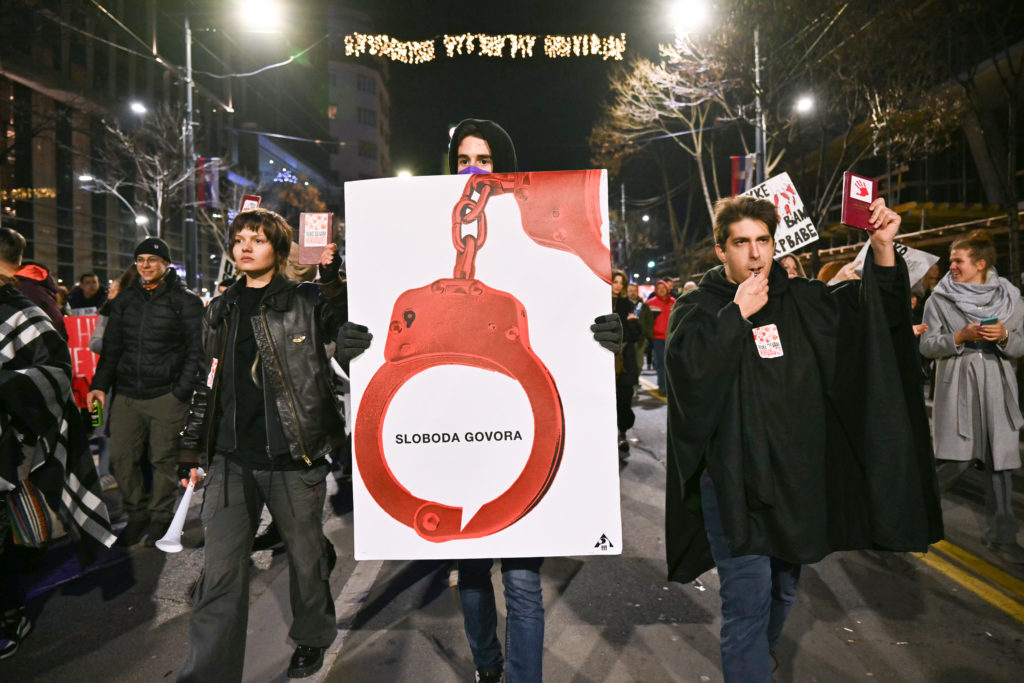With a hit by the “godmother of punk” Nina Hagen, Germany’s military saluted a visibly moved Angela Merkel during a ceremonial farewell Thursday, just a week before she is due to bow out of politics after 16 years in office.
Soldiers in full regalia and carrying flaming torches took part in the carefully choreographed evening event, accompanied by a marching band performing traditional military music and Merkel’s own playlist.
The ceremonial send-off came just days before Germany’s parliament is due to officially elect Social Democrat Olaf Scholz as Merkel’s replacement, putting the centre-left politician in charge after 16 years of conservative-led rule.
At the ceremony, Merkel said her four terms were “eventful and often very challenging years.
“They have challenged me politically and humanly and at the same time, they were also fulfilling.”
Alluding to the challenge of countering fake news as Germany fights the relentless coronavirus pandemic, she underlined the “great significance of trust in politics, science and societal discourse — and also how fragile all that is”.
Stressing that democracies live on “solidarity and trust — also from trust in facts”, she said that where scientific facts were being denied and where conspiracy theories abound, they must be energetically countered.
– ‘Highlight of my youth’ –
Known for her regular attendance at Bayreuth opera festival, dedicated to the composer Richard Wagner, Merkel had surprised military band leaders and political commentators alike with her unusual playlist for the military pomp.
While Helmut Kohl opted for Beethoven’s “Ode to Joy” and Gerhard Schroeder plumped for Frank Sinatra’s “My Way” when it was their turn to bow out, Merkel chose East German pop song “Du hast den Farbfilm vergessen” (You forgot the colour film) by Nina Hagen.
Asked at a press conference Thursday about the pick, Merkel said it harked back to her younger days in communist East Germany.
“The song was a highlight of my youth… The song also came from East Germany and, coincidentally, it is still played in a region that used to be my constituency. So everything fits today,” the 67-year-old said.
Merkel was born in the port city of Hamburg, but her father, a Lutheran clergyman and a schoolteacher, moved the family to a small-town parish in the communist East at a time when tens of thousands were headed the other way.
Hagen, who began her career in the East, emigrated to West Germany and became a leading figure in the punk scene of the 1980s.
In the song, Hagen complains that because her boyfriend forgot to bring colour film for the camera on their holiday, “no one would believe how beautiful it was here”.
An orchestral arrangement of the song, first released in 1974, was specially written by a music corps clarinetist for the ceremony.
– ‘Unexpectedly sentimental’ –
While few were surprised by Merkel’s pick of the hymn “Grosser Gott, wir loben dich” (Holy God, we praise thy name), commentators also raised their eyebrows over the third song, touching sixties ballad “Fuer mich soll’s rote Rosen regen” (It should rain red roses for me) by Hildegard Knef.
The tear-jerker is “unexpectedly sentimental for a woman with the sensible, pragmatic style of government,” noted Spiegel.
Its lyrics may hint at Merkel’s future, said Spiegel, citing the stanza: “Let it rain red roses for me, let me encounter new wonders, let me unfold anew from the old.”
Her choices reflected Merkel’s ability to “send messages better with gestures than with words”, the German Sueddeutsche daily wrote.
The veteran leader, who once said her dream back behind the Iron Curtain had been “to see the Rocky Mountains, drive around in a car and listen to Bruce Springsteen,” has been tight-lipped about what she’ll do next.
But she has said she pictures herself reading and maybe taking “a little nap”.
The military ceremony, known as a “grosser Zapfenstreich”, has its origins in the 16th century and is the highest tribute paid by the German army.











